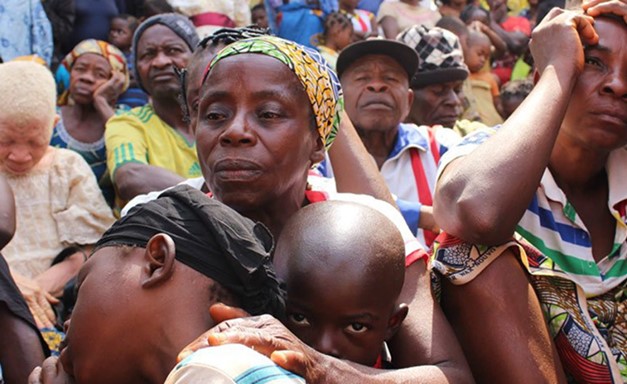Women are paying the ultimate price in Cameroon’s armed conflict
Post By Diaspoint | August 16, 2024

‘These experiences are damaging … wounds that can never be cured’
This story, which has sensitive content, was written by Shuimo Trust and Nkengafack Eucharia, and originally published by Minority Africa on July 28, 2024. An abridged version is republished below as part of a content-sharing agreement.
It was a deceptively sunny Monday in Cameroon’s embattled northwest region. The streets lay eerily silent — shops shuttered, taxis absent. It was no ordinary day off but a “ghost town” enforced by Anglophone separatists in their war against the Francophone-dominated government. Into this tense calm stepped Claudia, 21, on a simple mission to buy sanitary pads. Little did she know that her mundane errand would spiral into a horrific ordeal and lifelong psychosocial battles.
“Suddenly, there were gunshots, and I was going back to my house. I bumped into them, and they asked me what I was doing outside,” Claudia recalls. “The sanitary pad was visible, and they could all see that’s what took me out.”
The armed men, unconvinced, blindfolded Claudia and whisked her away on a motorbike. Thus began a harrowing five-hour journey from Bamenda town into an unknown forest.
“One of the boys started making sexual advances at me,” Claudia recounts. “ When I resisted, he used a cutlass on my head and pushed me to the floor.I tried resisting with my hands, then the other boy came and stood on my hands such that I could not resist,” Claudia says in tears. “He forced his way into me, and when he was done, he stood on my hands while the other boy also forced his way in.” For two days, Claudia was more or less a sex toy in the hands of her abductors. “I was feeling so much pain.’’
According to the February 2024 situation report of Cameroon by the United Nations Office for the Coordination of Humanitarian Affairs (OCHA), most survivors of gender-based violence are exposed to psychosocial impacts like isolation, rejection, mental disorder, and suicidal thoughts. Although some survivors receive support from non-profit organisations, the report indicates that harmful coping mechanisms can lead to devastating consequences like substance abuse and survival sex.
Read More from original source
